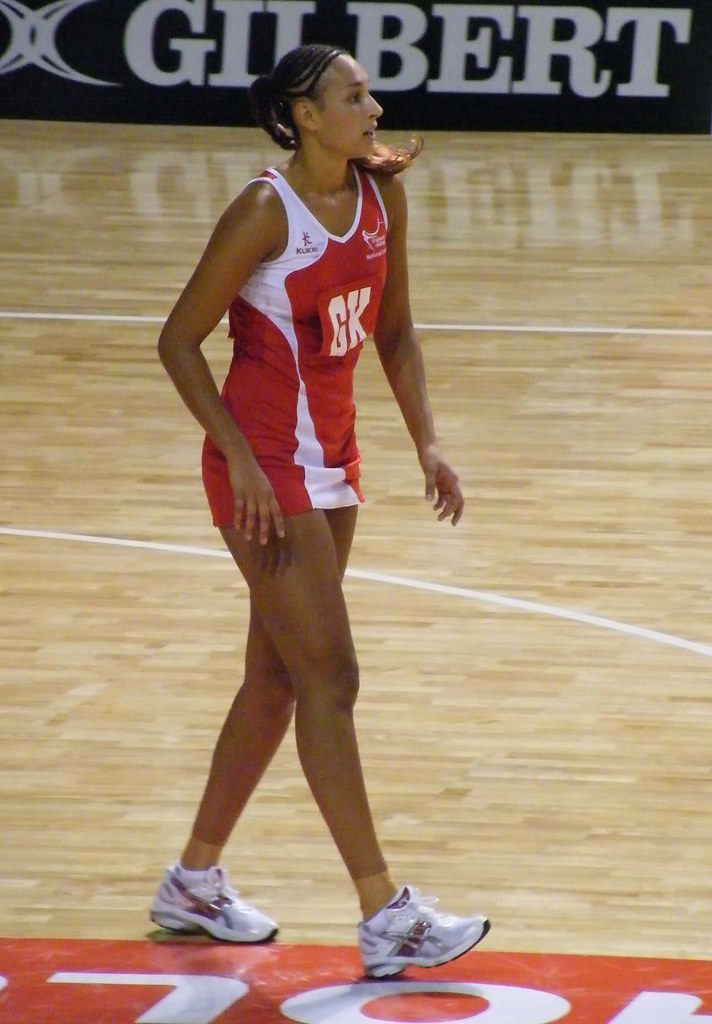By Jess Pinchbeck and Candice Lingam-Willgoss
With the 2019 Netball word cup upon us our screens are filled with inspirational female athletes and role models showing not only great displays of physical athleticism but also the psychological composure to perform under pressure. However, in addition to their netballing prowess these women are also role models for their inspirational stories off the court. Many of the players in the tournament are not full-time professional athletes and often hold down regular jobs alongside training and playing at elite level, demonstrating an extraordinary commitment and drive to fulfil their playing ambitions. Added to this some of the women combine work and elite sport with motherhood. This is something of a break from tradition which used to see women end their career in sport to have children but with optimal fertility often falling at the same time as peak performance we see more instances of elite athletes breaking down the myth that combining these two roles is incompatible.
One such inspiration story is that of Samoan international Gerardine Nafanua Solia-Gibb, a 35 year old mother of five boys aged between one and fourteen years. Despite being a mother of five Solia-Gibb is reported to be one of the fittest members of the Samoan camp, however she does explain that taking note of your body after birth is important, particularly the impact of breastfeeding which can soften ligaments and increase the risk of injury. There are also the logistics of training commitments and to overcome this her sons frequently attend training with her after school. Like many of the teams in the World Cup netball is not particularly well-funded in Samoa and so typically players work alongside playing netball. Solia-Gibb runs a fibre cable installation business with her husband, factoring this in alongside everything else. Coming from a sporting family herself with four older sisters, who have all made appearances for Samoa Netball, and a husband, who played rugby for Samoa, this perhaps gives her the drive and support network required to cope with such demands on her time.
Another mother to grace the courts at Liverpool this summer is 26 year old Singapore centre court player Shawallah Rashid, who returns to the World Cup squad after giving birth to her second child in February. Rashid admits to being driven to return to fitness following the birth to make the World Cup squad after missing out on previous competitions due to pregnancy. Similarly, to Solia-Gibb, Rashid also balances work, motherhood and netball successfully working as a secondary school executive. Rashid is the first mother to be part of the Singapore squad, and attributed her ability to return to international netball to the support of her family. Rashid admits that being apart from her children during the World Cup is not easy but feels that being a role model for her children is important. This example illustrates how a strong support network is necessary for an athlete who is considering balancing motherhood with sport and that this tends to be very tangible support (e.g. childcare) provided by both an athletes spouse and other family.
An example of the conflict between netball and motherhood is evident in Casey Kopua’s return to World Cup Netball for New Zealand following her international retirement in 2017. From a slightly different background in New Zealand, where Silver Ferns players typically earn enough money to be full-time netballers, 34 year old Kopua, is returning to international netball, after the birth of her first child in 2016. The desire to win a World Cup gold medal proving just too much to resist and with her daughter now slightly older, and the support of her family, Kopua feels it is the right time to return.
 Although some of the women here have demonstrated that it is possible to combine motherhood and netball, for some this feels unachievable. Many players see international netball and motherhood as incompatible, often deciding to retire from the sport when they wish to start a family. As alluded to by Rashid the incompatibility of this often stems from the fact that a sport such a netball requires a mother having to be away from her family for extensive periods of time. However, 34 year old England goalkeeper, Geva Mentor, has chosen a slightly different path and opted to freeze her eggs after the tournament to be able to become a mother once she makes the decision to retire. Mentor hopes this leads the way for other young netballers to give them an option of having a full career before starting a family.
Although some of the women here have demonstrated that it is possible to combine motherhood and netball, for some this feels unachievable. Many players see international netball and motherhood as incompatible, often deciding to retire from the sport when they wish to start a family. As alluded to by Rashid the incompatibility of this often stems from the fact that a sport such a netball requires a mother having to be away from her family for extensive periods of time. However, 34 year old England goalkeeper, Geva Mentor, has chosen a slightly different path and opted to freeze her eggs after the tournament to be able to become a mother once she makes the decision to retire. Mentor hopes this leads the way for other young netballers to give them an option of having a full career before starting a family.
It would appear that with a good support network and the financial stability required managing international netball and a family, often alongside a career, can be achievable and effective, however for some players the prospect of taking the career break required to have a baby is too much to contemplate. With Netball continuously rising in popularity and increasing professional opportunities for elite players there are many issues surrounding netball and motherhood that need to be explored further.
